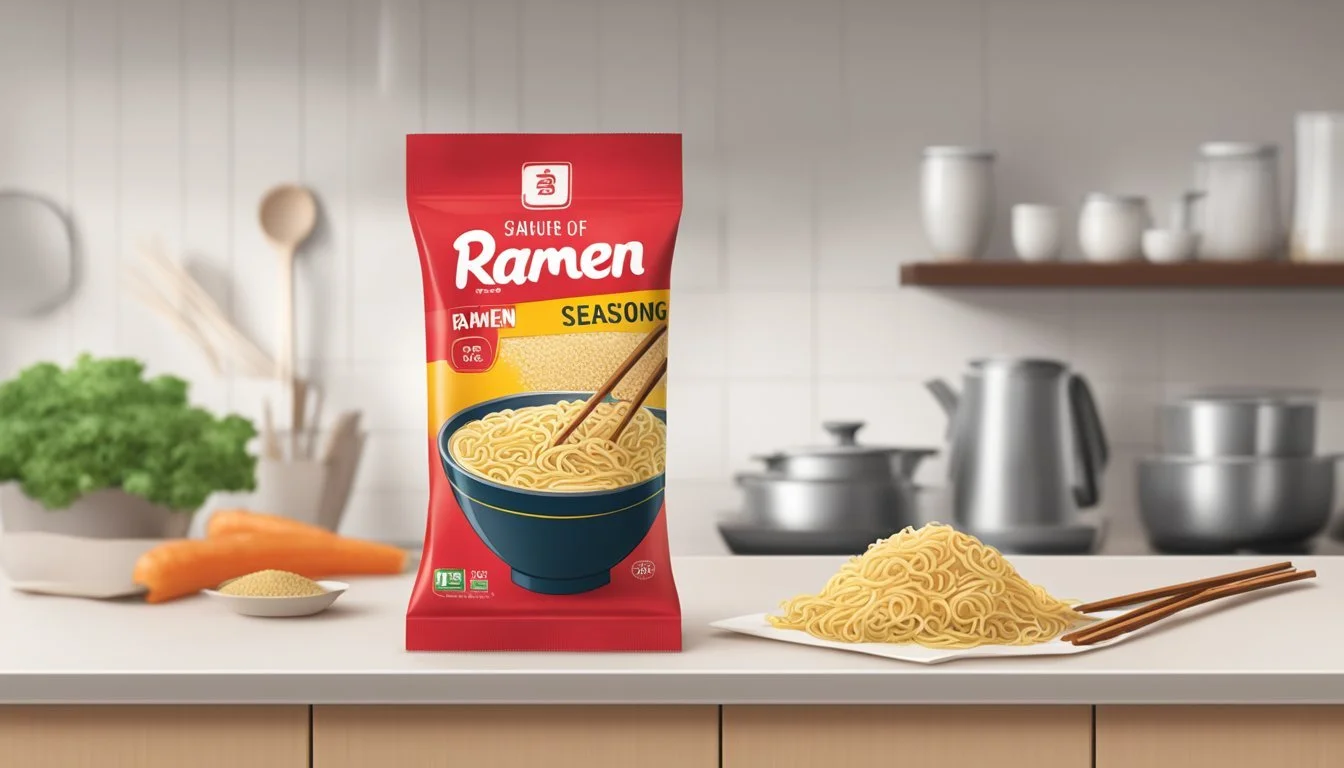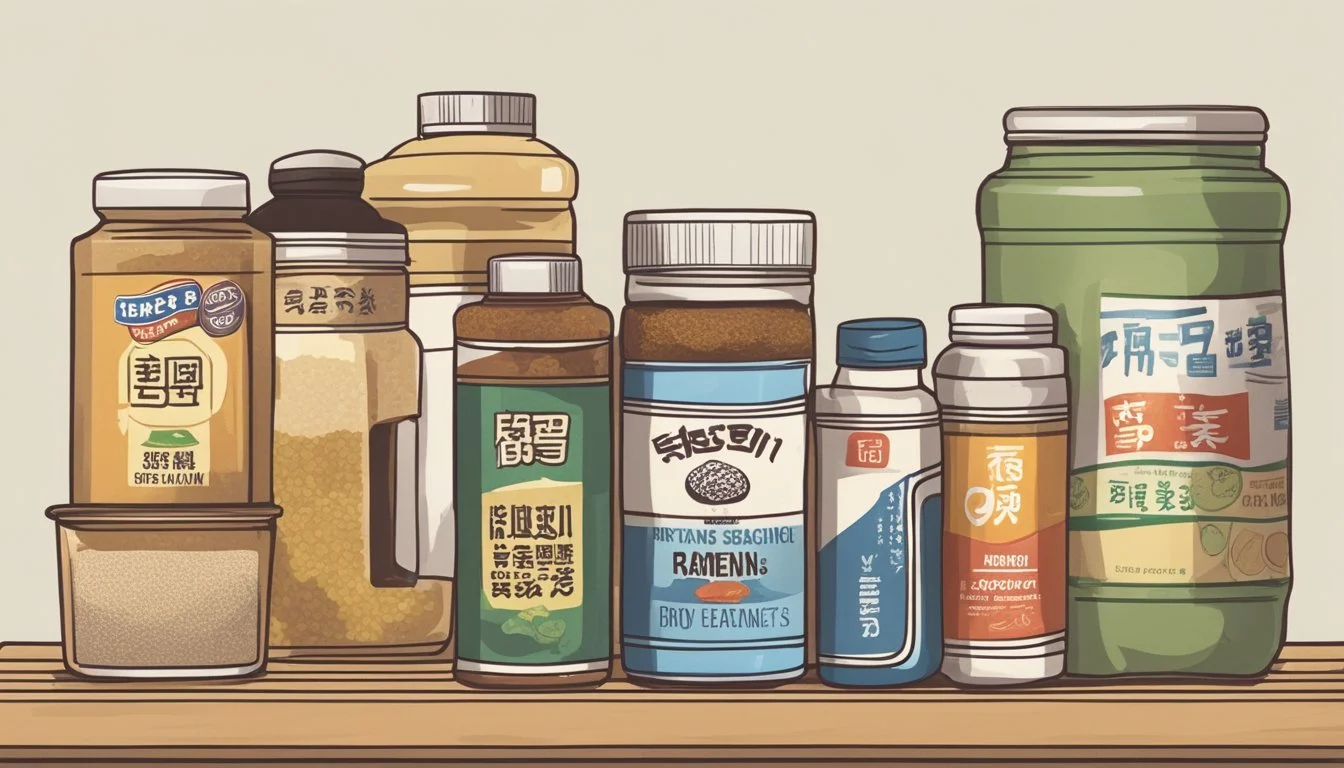Does Ramen Seasoning Expire?
Understanding Shelf Life and Safety
Ramen, a convenient and beloved meal option for many, often raises questions about the longevity of its components. Among these, the seasoning packets are a particular concern due to their distinct ingredients. Ramen seasoning does expire, and it's important to be cautious when consuming it past its expiration date.
The expiration date printed on the package serves as a guideline for when the seasoning's flavor and quality might decline. Typically, unopened ramen seasoning packets can last between 6 to 12 months when stored properly. The preservative nature of the spices and flavors starts to deteriorate over time, affecting the taste and potentially the safety of the seasoning.
Using expired seasoning can lead to a significantly diminished taste in your ramen dish, making it less enjoyable. In some cases, using seasoning packets well past their expiration may result in mild food safety risks. Therefore, it's always prudent to check the expiration date and ensure proper storage to maintain the quality and safety of your ramen meal.
Understanding Ramen
Ramen is a beloved noodle dish originating from Japan, known for its diverse ingredients and cultural significance. This section explores the main ingredients and types of ramen, differences between instant and fresh ramen noodles, and the cultural value of ramen in Japanese cuisine.
Ramen Ingredients and Types
Ramen noodles are primarily made from wheat flour, water, and salt. Some variations include kansui, an alkaline mineral water that gives ramen its distinctive chewiness.
Instant noodles often include preservatives and oil, while fresh ramen noodles are more perishable but considered superior in taste and texture.
The variety of ramen extends to the broth and toppings, which can include soy sauce, miso, tonkotsu (pork bone), and shio (salt). Common toppings are chashu (braised pork), menma (bamboo shoots), and nori (seaweed).
Instant Ramen vs. Fresh Ramen Noodles
Instant ramen, known for convenience, is dried and can be quickly prepared by adding boiling water. It typically has a longer shelf life due to added preservatives and is often sold with seasoning packets.
Fresh ramen noodles are found in refrigerated sections and require a more thoughtful preparation, such as boiling and combining with fresh ingredients. These noodles offer a better texture and flavor but have a shorter shelf life and need refrigeration.
Cultural Significance of Ramen in Japanese Cuisine
Ramen has substantial cultural importance in Japan, embodying a mix of local and international culinary influences. It is both a street food and a gourmet delight, with specialized ramen shops (ramen-ya) found throughout Japan.
The dish represents regional variations, with notable styles from different parts of Japan. For example, Hakata ramen is known for its rich, milky pork bone broth, while Sapporo ramen is celebrated for its robust miso-flavored soup.
Ramen's cultural impact extends beyond Japan, contributing to its global popularity as a versatile and beloved comfort food.
Shelf Life of Ramen Seasoning
Ramen seasoning packets have a varying shelf life influenced by preservatives, proper storage, and the expiration dates printed on the packaging. This section examines these elements to provide a comprehensive understanding of the shelf life of ramen seasoning.
Preservatives and Shelf Stability
Ramen seasoning packets often contain preservatives to enhance their shelf stability. Common preservatives, such as BHT and tocopherols, help prevent the oxidation of spices and flavors.
Additionally, the dehydration process used in manufacturing prolongs the life of these seasonings by reducing moisture that can host bacteria or mold. Spices, salt, and other dried ingredients in the seasoning packets naturally contribute to longer shelf life due to their low moisture content.
Decoding Ramen Expiration Dates
The expiration dates on ramen seasoning packets indicate the period during which the product is expected to remain at its best quality. These dates, usually labeled as "best-by date," should not be ignored but can be flexible.
An unopened packet of ramen seasoning may retain its flavor and safety for a few months beyond the printed date if stored correctly. Always check for signs of spoilage, such as changes in taste or odor, before using expired packets.
Factors Affecting the Shelf Life of Seasoning Packets
Several factors can affect the shelf life of ramen seasoning packets. Storage conditions play a crucial role:
Keep packets in a cool, dry place to prevent moisture and heat from degrading the spices.
Avoid exposure to direct sunlight, which can hasten the breakdown of ingredients.
The specific blend of spices and preservatives also influences longevity. Seasoning packets with higher salt content might last longer due to salt's preservative qualities. Regularly inspecting season packets for signs of deterioration ensures they remain safe and flavorful for use.
This information helps maintain ramen seasoning packets in optimal condition and maximizes their usability even beyond the expiration date.
Indicators of Expired Ramen Seasoning
Expired ramen seasoning can exhibit several clear signs that it has gone bad. Specific changes in appearance and smell are primary indicators.
Visual Inspection: Discoloration and Mold Growth
When ramen seasoning expires, it can show visible signs of spoilage. One of the most obvious indicators is discoloration. Fresh seasoning usually has a consistent color, but expired seasoning may appear darker or spotted. Mold growth is another clear sign. Mold can appear in various colors, including white, green, or black.
Inspecting the seasoning packet for any signs of moisture intrusion can also provide clues. If the packet looks puffy or has leaked, it's more likely that the contents have spoiled.
Detecting Changes in Smell and Taste
Another important indicator of expired ramen seasoning is a change in its smell and taste. Fresh seasoning has a strong, savory aroma, but when it has gone bad, it may emit an unpleasant odor.
A rancid or sour smell is a key sign that the seasoning is no longer good to use. Regarding taste, expired seasoning can lose its flavor or develop an off-taste, making the ramen dish unappetizing. Tasting a small amount before adding it to the noodles can help confirm its freshness.
Safety and Consumption
Consuming expired ramen noodles can pose safety concerns, especially considering the potential for bacteria growth in flavor packets. Though dried noodles are fortified with preservatives for extended shelf life, seasoning packets require more caution. Safe consumption depends on recognizing spoilage signs and adhering to recommended storage practices.
Harmful Effects of Consuming Expired Seasonings
Expired seasonings in ramen packets can potentially harbor harmful bacteria, leading to foodborne illnesses. Common symptoms include upset stomach, diarrhea, and food poisoning. Seasoning packets may also lose potency, resulting in off-flavors or reduced taste quality.
Bacteria such as Salmonella or E. coli can proliferate if packets are not stored properly. It's crucial to check expiration dates and inspect packets for any discoloration or unusual odor before use.
Myths vs. Truth on Ramen Expiration Dates
There is a common misconception that ramen is always safe to eat past its expiration date. While the dried noodles might remain edible, the seasoning packets are more susceptible to spoilage. Expiration dates indicate the period during which the product maintains peak quality and safety.
Though some believe that preservatives in ramen are sufficient to prevent spoilage indefinitely, single-use seasoning packets can deteriorate, affecting both safety and flavor. Proper storage in cool, dry places is essential to maximize the shelf life of ramen seasoning packets and ensure they remain safe to consume.
Proper Storage Practices for Ramen
Ensuring the longevity of ramen noodles and their seasoning packets involves proper storage techniques. Key factors include maintaining optimal conditions and understanding the role of packaging.
Optimal Storage Conditions for Ramen and Seasonings
Ramen noodles and their seasoning packets should be stored in cool, dry places. This helps prevent the growth of mold and bacteria. The pantry is an ideal location, provided it is away from direct sunlight and moisture. For fresher varieties of ramen, refrigeration can extend shelf life.
Using airtight containers is crucial. Exposure to air can degrade the quality of both noodles and seasonings by causing them to lose flavor or absorb moisture. When dealing with opened packages, transferring contents to sealed containers helps maintain freshness and safety.
Avoid storing ramen near sources of heat or humidity. The kitchen or bathroom might not be the best choices due to frequent temperature changes and moisture levels. Instead, opt for stable environments like a dedicated pantry or a storage cabinet.
The Impact of Packaging on Ramen Shelf Life
The original packaging of ramen provides a good level of protection against environmental factors. Generally, these packets are designed to keep air, moisture, and light out. It's vital to keep these packages sealed until use.
If transferring ramen to other containers, ensure they are truly airtight. This reduces the risk of exposure to degrading elements like air and moisture. For long-term storage, vacuum-sealed bags can be particularly effective.
Proper packaging can significantly prolong the shelf life of ramen. For instance, unopened instant ramen can last several months to a year when stored correctly. Fresh ramen should be consumed within a couple of weeks or stored in the freezer to maintain its quality.
Adhering to these practices secures the quality, taste, and safety of ramen noodles and their seasoning packets as long as possible.
Deciding Whether to Eat Expired Ramen
Eating expired ramen can be a gamble, impacting both taste and safety. Key considerations include the condition of the noodles and seasoning, as well as balancing health risks against budget constraints, especially for college students.
Assessing Ramen Noodles and Seasoning Viability
Expired ramen, whether packaged or cup noodles, requires careful inspection. Look for damage packaging which increases risk of pests and contaminants. Noodles should be crunchy and free from discoloration or unusual smells. If noodles appear bleached or stale, it’s best to discard them.
The seasoning packet is another consideration. Sealed seasoning typically stays good longer than noodles but may lose its savory and spicy flavors over time. If it shows signs of clumping or unusual color, it is likely no longer safe to use. The truth about ramen expiration dates is that while they offer guidance, actual spoilage depends on storage conditions.
Ramen for College Students: Balancing Risks and Budget
College students often turn to ramen for its cost-effectiveness. Despite ramen's affordability, eating expired ramen can pose health risks. Consuming dried ramen noodles past their expiration can lead to stomach issues if the noodles have gone bad or are contaminated by bugs.
Balancing risks involves frequent checking of expiration dates and proper storage in a cool, dry place. Students should be cautious of both cooked ramen and fresh ingredients like vegetables and meat, which spoil faster than dried products.
Prioritizing health by avoiding expired broth and spices is essential. It’s also wise to invest slightly more in fresher options when feasible to avoid potential health complications.






